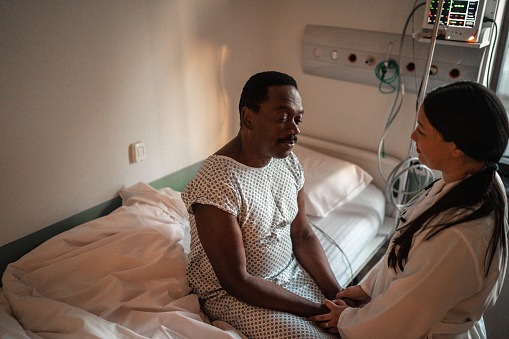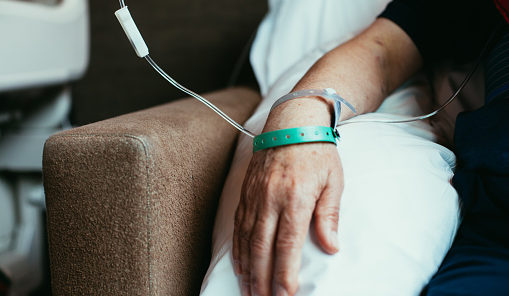Black men who are most likely to benefit from receiving advanced prostate cancer therapies are notably less likely to receive them than non-Black men, according to a study published in the journal Cancer.
In this study, researchers analyzed the medical records of 35,427 men treated for early to moderate prostate cancer at U.S. Veterans’ Health Administration facilities from 2011 to 2017. Most patients were over age 60, were married, and were in relatively good health.
The population was characterized by their life expectancy, and their disease disparity. As an example, the researchers noted, men in their 50s with aggressive cancer, who had surgery or radiation were deemed to have received “high-benefit” treatment because it had the greatest impact on their life expectancy. Conversely, they further noted, much older men with non-aggressive cancers would have been assessed as “low” benefit for aggressive prostate cancer treatments.
According to the results, Black men most likely to benefit from prostate cancer treatments, such as men who aggressive disease with were otherwise healthy, were 11% less likely to receive them than non-Black men of similar age and cancer severity. These findings add to previous studies that have documented that Black men have a three-fold higher chance of dying from prostate cancer than non-Black men.
“Our study suggests, for reasons that remain unclear, that Black men who need treatment may be choosing against the most beneficial prostate cancer therapies (which are often more invasive), or that such ‘high- benefit’ treatments, are not being offered to them as aggressively as they are to non-Black patients,” says study co-investigator Joseph Ravenell, MD, associate dean for diversity affairs and inclusion at NYU Langone via a press release.
“Our findings strongly indicate that patients and physicians should discuss fears, values, and preferences when considering all of the relevant treatment options for prostate cancer,” says study senior investigator and urologic surgeon Danil Makarov, MD, MHS.
“Despite great strides in prostate cancer care over the past few decades, racial disparities in care persist, and there remains a lot to be done to better understand why this is happening and what we can do to finally close the gap,” says Makarov, an associate professor in the Departments of Urology and Population Health at NYU Grossman School of Medicine.
“At the end of day, our goal is to offer patients the most appropriate cancer care they need, using a culturally sensitive approach,” says Makarov, also a member of the Perlmutter Cancer Center, whose team is examining interventions such as counseling Black men on their risks and the benefits of prostate cancer screening, which could reduce disparities in care.
Credit: Original article published here.










